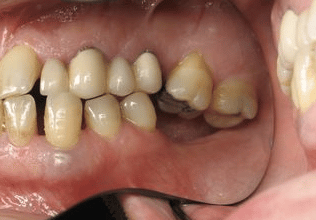The Comprehensive Guide to Family Dentistry: Prioritizing Oral Health for All Ages

Table of Contents
Table of Contents
- Introduction to Family Dentistry
- Benefits of a Family Dentist
- Common Family Dental Services
- At-Home Oral Care Tips
- Pediatric Dentistry: What Parents Should Know
- Managing Dental Anxiety for All Ages
- Incorporating the Latest Dental Technology
- Frequently Asked Questions
Introduction to Family Dentistry
Much like a well-woven tapestry, family dentistry combines various threads of dental care into a comprehensive practice that caters to individuals at every stage of life. With its focus on preventive care and patient education, family dentistry aims to cultivate lifelong healthy habits and informed decisions regarding oral health care. A family dentist serves as a central figure in maintaining this continuity, offering quality dental care that meets the diverse needs of all family members, from toddlers cutting their first teeth to grandparents preserving their smiles.
This approach underscores the importance of an all-encompassing care strategy that sees beyond immediate concerns, delving into anticipatory guidance and long-term oral health strategies tailored to each individual’s developmental stage and biological needs. Herein lies the heart of family dentistry: promoting a dental home where early signs of dental issues can be identified and addressed with care and expertise.

Benefits of a Family Dentist
Choosing a family dentist offers many benefits that streamline your dental care regimen. First and foremost is the convenience factor. With all family members treated at the same clinic, scheduling consecutive appointments and coordinating busy schedules without compromising essential health checks becomes easier. Additionally, having one dental care provider ensures your family’s oral health history is tracked thoroughly. This continuity is beneficial for diagnosing hereditary conditions and surveying ongoing treatments or preventive measures.
Beyond convenience, the personalized aspect of care deserves mention. A family dentist comprehensively understands diverse age-related dental health changes, creating customized care plans to suit each family member’s unique requirements.
Common Family Dental Services
The range of services offered in family dental practices ensures comprehensive care that addresses the multifaceted nature of dental health. The cornerstone of most practices is routine cleanings and examinations, which effectively catch early signs of decay and provide thorough preventative care. These visits are further supplemented by fluoride treatments, which aim to fortify the teeth’s natural defenses against cavities and erosion.
Sealants and fillings protect and fortify the teeth, preventing decay from taking hold in vulnerable crevices and repairing damages before they warrant more extensive procedures. Orthodontic evaluations, often performed during childhood or early teenage years, help guide the corrective treatments for misaligned bites, imparting confidence and functionality to one’s smile. This assurance of attentive care at all stages builds a firm foundation for lifelong dental wellness.
At-Home Oral Care Tips
Oral health truly begins at home. Establishing habits like regular brushing, fluoride toothpaste, and consistent flossing protects against the formation of plaque and tartar. It’s not just the frequency but also the technique that matters; utilizing gentle circular motions while brushing and ensuring thorough interdental cleaning can drastically impact oral health outcomes.
Moreover, dietary considerations play a crucial role. Consuming a balanced diet rich in vegetables, fruits, and whole grains while limiting sugar intake helps maintain enamel health. Replacing sugary snacks with healthier alternatives reduces the risk of cavities and contributes to overall well-being.
Pediatric Dentistry: What Parents Should Know
Positively introducing children to dental visits is crucial in setting a precedent for their future health choices. Pediatric dentistry emphasizes early, consistent check-ups to monitor growth and development while instilling a positive perception of oral care. It’s advised that children have their initial dental appointment by their first birthday to familiarize them with the process and allow dentists to monitor developmental progress closely.
This early introduction helps detect potential issues like alignment problems or tooth decay, fostering a preventive rather than reactive approach. Establishing dental visits as a non-negotiable part of health care from the beginning can create an environment without fear or anxiety, promoting proactive health management.
Managing Dental Anxiety for All Ages
Although dental anxiety is a common hurdle, it shouldn’t hinder achieving optimal oral health. People experience dental anxiety for various reasons—be it previous unpleasant experiences, fear of pain, or even perceived loss of control. However, there are effective ways to counteract this nervousness. Techniques like controlled breathing, meditative practices, and the distraction offered by music or podcasts during procedures can considerably ease anxiety.
These techniques can significantly diminish subjective distress and enhance the overall experience for individuals of all ages. Discussing apprehensions with a dentist can also be beneficial. Dentists can provide tailored approaches to manage anxiety, thus creating a more comfortable and efficient care environment.
Incorporating the Latest Dental Technology
As technology advances, so too does its application in family dentistry. Modern innovations such as digital X-rays offer more explicit images with reduced radiation exposure, enabling more accurate diagnostics. Intraoral cameras allow for detailed visual examinations without the discomfort associated with traditional methods, providing patients with a better understanding of their oral health.
Furthermore, laser dentistry and 3D printing technologies represent the frontier of painless, minimally invasive treatment solutions. These advancements improve the precision with which dental care is delivered and significantly enhance patient comfort, aligning with the modern ethos of convenience and efficiency in health care.
Frequently Asked Questions
- At what age should children start seeing a dentist? Ideally, they should have their first dental check-up by their first birthday to establish a baseline and guide healthy development.
- How often should one visit a family dentist? Regular check-ups every six months are commonly recommended to maintain dental health, with more frequent visits if specific treatments or conditions require it.

